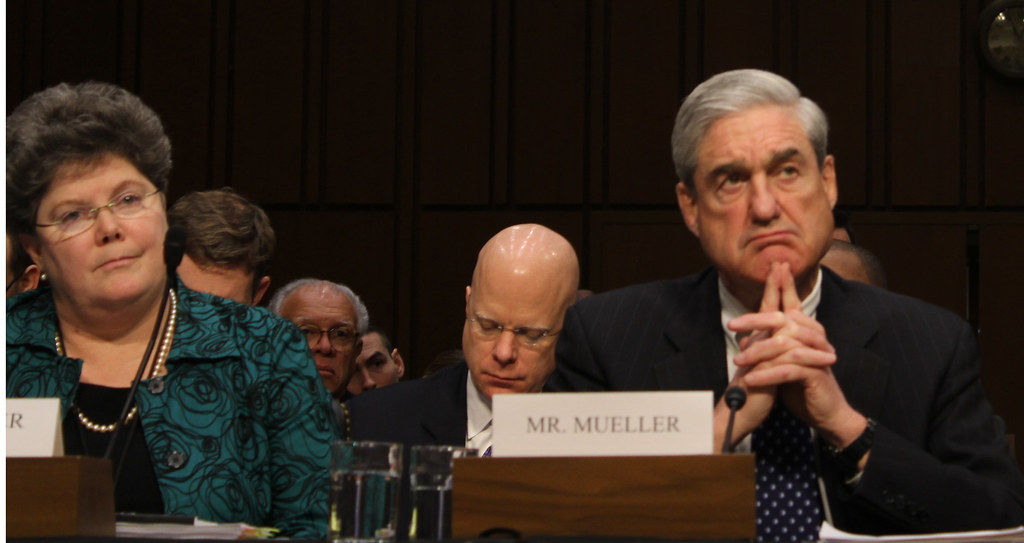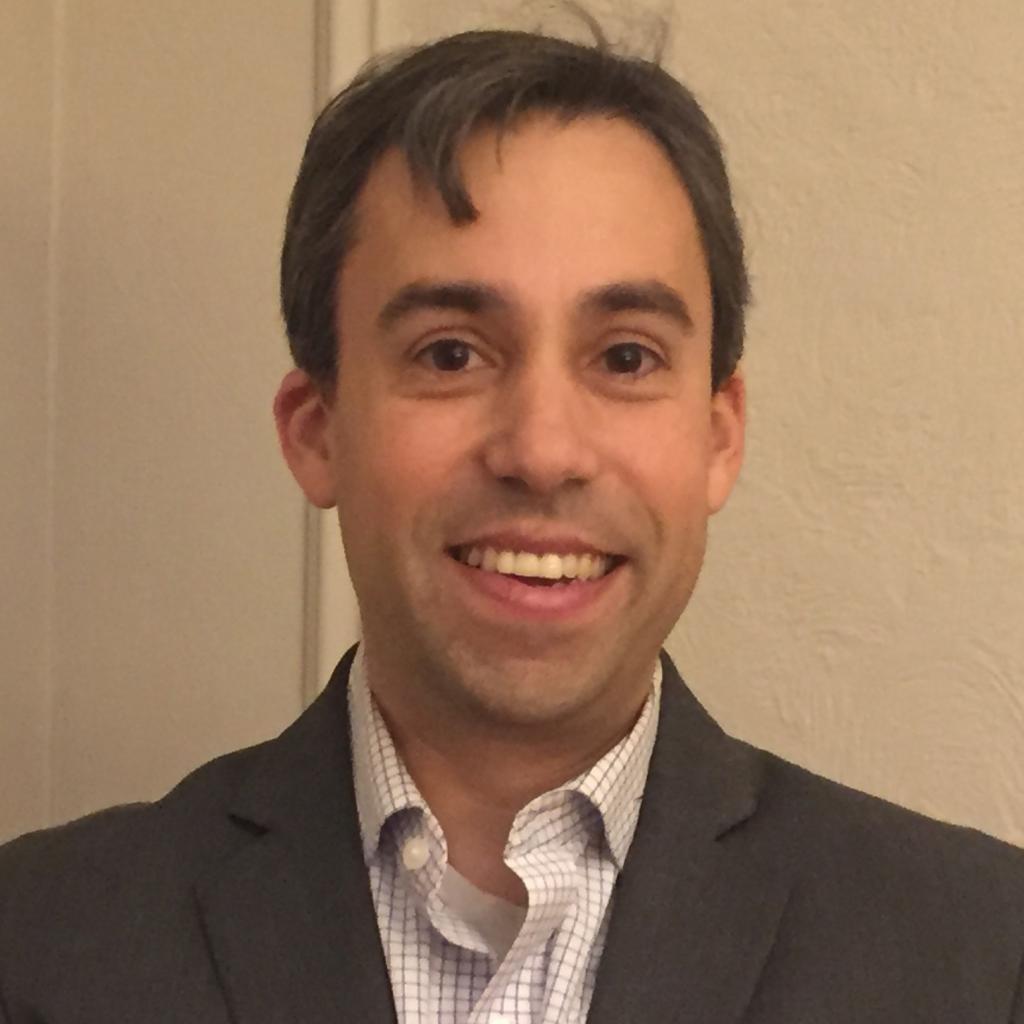Defending Mueller’s Constitutional Analysis on Obstruction and Faithful Execution
The extent to which federal obstruction of justice statutes apply to the president, especially when concerning actions facially within the office’s powers under Article II, has been hotly contested at least since President Trump fired FBI Director James Comey in May 2017.

Published by The Lawfare Institute
in Cooperation With

The extent to which federal obstruction of justice statutes apply to the president, especially when concerning actions facially within the office’s powers under Article II, has been hotly contested at least since President Trump fired FBI Director James Comey in May 2017. More recently, the issue came to the foreground when Attorney General William Barr cleared President Trump of obstruction of justice based on a factual record compiled by Special Counsel Robert Mueller, which others argued pointed strongly toward multiple instances of criminal obstruction.
There are two related issues here that can usefully be considered separately. The first, which has been debated extensively at Lawfare, is whether Mueller erred when he declined to apply a clear statement rule to the obstruction of justice statutes. Jack Goldsmith and others have argued that this rule should have been applied to Trump’s actions that involved uses of Article II powers. Applying this rule to the relevant obstruction statute, 18 U.S.C. § 1512(c), they argue, would exempt Trump’s actions because the statute does not clearly state that it covers presidents; the statute’s text instead covers corruptly motivated obstructive acts by “[w]hoever” commits them.
A second issue, which has also received attention at Lawfare from Benjamin Wittes, Quinta Jurecic and others, is constitutional: Are separation of powers principles violated by the application of the obstruction statutes to presidential action facially within Article II authorities? In that case, criminal liability would turn on proving the presence of a corrupt intent for taking an otherwise lawful action. The Mueller report considered this question in some detail and answered in the negative. This conclusion and its supporting analysis have likewise been criticized on various grounds.
But as we explain below, Mueller’s take on the second, constitutional question is consistent with the text, history, structure and principles of the Constitution, as well as the Supreme Court’s case law on the subject. We have only sketched an argument here; full development of it would take much more time and space.
The Competing Views on the President’s Asserted Constitutional Defense to Obstruction
In June 2017 and January 2018 letters to the special counsel’s office, which have been published, as well as February and August 2018 letters, which have not, Trump’s private lawyers argued that presidential actions that fall within the scope of the president’s Article II powers cannot constitute criminal obstruction, “[T]he President’s actions here”—actions such as the president’s request that Comey drop the investigation of Michael Flynn, the subsequent firing of Comey, efforts to stop or overturn the recusal of Attorney General Jeff Sessions, and other actions by Trump apparently intended to interfere with the Mueller investigation—“by virtue of his position as the chief law enforcement officer, could neither constitutionally nor legally constitute obstruction because that would amount to him obstructing himself, and that he could, if he wished, terminate the inquiry, or even exercise his power to pardon if he so desired.”
In a 19-page memo written while still a private citizen, Barr set out a slightly different view of why the obstruction statutes cannot apply to Article II-based actions. “[D]efining facially-lawful exercises of Executive discretion as potential crimes, based solely on subjective motive,” he argued, “would violate Article II of the Constitution by impermissibly burdening the exercise of core discretionary powers within the Executive branch.” He conceded, however, that presidential actions that, on their face, are corrupt or wrongful—such as giving or taking a bribe, or ordering evidence to be destroyed—could be criminalized without violating Article II. The Justice Department Office of Legal Counsel (OLC) argued the same in a 1995 opinion, noting that bribery is expressly mentioned in the Constitution as an impeachable offense.
We should note that critics of Mueller have not, in our view, clearly defined what falls within the category of presidential action facially within Article II that, they believe, cannot constitutionally be treated as criminal. Barr’s memo defines immunized conduct by contrasting it to “inherently wrongful, subversive acts” which “sabotag[e] a proceeding’s truth-finding function,” such as “suborn[ing] perjury, or induc[ing] a witness to change testimony.” Here, we agree with Daniel Hemel and Eric Posner, who questioned the coherence of Barr’s categories. And moving from theory to practice, we have seen that Barr as attorney general has been willing to excuse a large amount of seemingly obstructive actions by President Trump.
In any event, it appears that Mueller does not share Barr’s view that facially valid uses of Article II (whatever those are exactly) can never be treated as criminal. Following case law, the Mueller report defines the requirement that an act be done “corruptly” in order to violate an obstruction of justice statute as requiring that a person act “dishonestly,” with “an improper purpose,” “with an intent to give some advantage inconsistent with official duty and the rights of others” to “subvert, impede or obstruct” an official proceeding. Mueller then reasons that no constitutional issues are raised by Congress prohibiting the president from obstructing justice, because obstructive and corrupt “actions would transgress the President’s duty to ‘take Care that the Laws be faithfully executed.’” In other words, the president would be acting ultra vires if he were to take official actions corruptly, and therefore there is no constitutional problem with Congress prohibiting it. “The term ‘corruptly’ sets a demanding standard,” according to Mueller, and “[t]hat standard parallels the president’s constitutional obligation to ensure the faithful execution of the laws.”
Elsewhere in the report, the special counsel writes that:
A general ban on corrupt action does not unduly intrude on the President's responsibility to “take Care that the Laws be faithfully executed.” U.S. Const. Art. II, § 3. To the contrary, the concept of “faithful execution” connotes the use of power in the interest of the public, not in the office holder’s personal interests.
Thus, application of the obstruction of justice statutes to presidential conduct is consistent with Article II, and the Take Care Clause in particular. We think Mueller got this right.
Constitutional Text, History, Precedent and Structure All Support Mueller’s Approach
The starting point for understanding Mueller’s argument is the Take Care Clause of Article II. And the starting point for constitutional interpretation is the plain meaning of the text at the time it was adopted. Mueller cited to the leading dictionary used to interpret the original Constitution of 1787, Dr. Samuel Johnson’s. The special counsel might have pointed to other dictionaries from that time, but they all give more or less the same definition: to act faithfully means “[w]ith strict adherence to duty and allegiance.” Often the dictionaries add synonyms such as impartially, honestly and the like.
“Faithful Execution” of Office
Turning from plain meaning, one should next consider evidence of textual meaning revealed in debates surrounding the adoption of the Constitution, and any evidence showing that a word or phrase in the Constitution had specialized meaning, perhaps as a legal term of art. A soon-to-be-published article by one of us (Kent), co-authored with Ethan Leib and Jed Shugerman, shows that the plain or dictionary meaning of the Take Care Clause in 1787 was consistent with a specialized meaning that had developed over the centuries in Anglo-American law.
The language of “faithful execution” in the Take Care Clause and the Article II oath—“I will faithfully execute the Office of President”—was for centuries before 1787 very commonly associated with the performance of public offices, including by quite lowly, ministerial officials. “Faithful execution” imposed three core requirements on officeholders, that would have been understood to be incorporated into Article II:
(1) Diligent, honest, careful, good faith, and impartial execution of law or office.
(2) A duty not to misuse an office’s funds and or take unauthorized profits.
(3) A duty not to act ultra vires, beyond the scope of one’s office.
These three duties of faithfulness look a lot like fiduciary duties in modern private law. This “fiduciary” reading of the original meaning of the Faithful Execution Clauses in Article II supports the view that presidents must exercise their power in good faith, for the public interest, and not for reasons of self-dealing, self-protection, or other bad faith, personal reasons.
Judicial and Executive Branch Precedent
Turning from plain meaning and the historically accrued specialized meaning of the text, a constitutional interpreter should next consult case law. Despite the seeming centrality of the Take Care Clause to the definition of executive power, the Supreme Court has not said very much about the clause, as Jack Goldsmith and John Manning have noted. What the Supreme Court has said, however, is generally supportive of Mueller’s position and consistent with the dictionary meaning and specialized meaning of a command to faithfully execute the laws. We acknowledge, though, that no holding or dicta of the Supreme Court addresses, much less resolves, the issue we confront here.
Justice Joseph Story, writing for the court, paraphrased the Take Care Clause as requiring “honest discharge of [the President’s] official obligations.” Another Story opinion described the clause as imposing a “trust” on the president. In a legal sense, “trust” describes an estate held on behalf of and for the benefit of another, with fiduciary requirements of good faith and due care imposed on the trustee.
The Take Care Clause grants the president the power to supervise subordinate executive officials, within limits, and to remove certain kinds of subordinate officials from office. The Supreme Court has also suggested that the clause, along with other parts of Article II, grants the president some power to act to protect “rights, duties and obligations growing out of the Constitution itself [and] our international relations.”
Moreover, the clause conveys a measure of prosecutorial discretion on the president, but this discretion, the Supreme Court noted, is “subject to constitutional constraints.” This is something that Barr and other supporters of super-charged presidential powers frequently fail to fully appreciate—there is little if anything in the Constitution that is not subject to constraints by other parts of the Constitution. Justice Clarence Thomas, discussing the Take Care Clause and other constitutional provisions, has pointed out that “[i]n addition to allocating power among the different branches, the Constitution identifies certain restrictions on the manner in which those powers are to be exercised.” In other words, the execution of laws by the president must, according to the Constitution, be done “faithfully.” That adverb has as much constitutional significance as the rest of the clause.
Justice Samuel Alito, joined by Justice Neil Gorsuch, recently suggested that the Take Care Clause requires “fidelity to law” by the executive. To a similar effect, we think, Justice Felix Frankfurter’s celebrated concurrence in the Youngstown case quotes Justice Oliver Wendell Holmes opining that “[t]he duty of the President to see that the laws be executed is a duty that does not go beyond the laws or require him to achieve more than Congress sees fit to leave within his power.” This reading is amplified by a number of Supreme Court opinions, including Youngstown, which state variously that the Take Care Clause prohibits the president from revising, suspending or dispensing with the application of Congress’s laws, or displacing the legislature’s role by purporting to legislate.
The OLC, the Office of the Solicitor General and other executive components have cited the Take Care Clause on numerous instances to support the exercise of presidential power. We will not attempt to exhaustively review this literature. Suffice it to say, however, that we are not aware of any instance in which the U.S. government has taken the considered position that the clause, or any other part of Article II, authorizes the president to take official action “corruptly”— meaning, as noted above, dishonestly, with an improper purpose, with an intent to give some advantage inconsistent with official duty and the rights of others, or to subvert, impede or obstruct an official proceeding.
Constitutional Structure
Other aspects of constitutional design show that the Constitution was written to reduce the possibility of having a chief executive who could make arbitrary, self-interested or bad faith use of the office contrary to the interests of the people of the United States. As we have pointed out previously, the founders rejected monarchy and its most corrupting features. A republican chief executive was created instead, structured to avoid the corruption and self-interested policymaking of monarchy and better align that official’s interests with the people’s.
The American chief magistrate does not have total, perpetual immunity from legal accountability. A president, unlike the British monarch, can be impeached and removed from office (Art. I § 3, and Art. II § 4). Criminal prosecution of a president is affirmatively contemplated by the Constitution (Art. I § 3), certainly after the president left office and, some founders also thought, even while in office.
By banning titles of nobility (Art. I § 9), and providing that the president would be elected to a term of years (Art. II § 1) rather than being chosen on hereditary principles and ruling for life, the Constitution addresses the fear that a chief executive’s primary interest would be perpetuation of his dynastic successors and retainers rather than the good of the country. A number of English monarchs had been born abroad and held foreign lands and titles. The Constitution responded to the concern that this would give a chief magistrate different interests than those of the U.S. public by requiring that the president be a natural-born citizen or a citizen at the time the Constitution was adopted (Art. II § 1).
The president is given a salary, which may not be raised (or lowered) by Congress while he is in office (Art. II § 1), and is also prohibited from imposing taxes or otherwise raising funds on his own authority (Art. I § 8) and barred from accepting bribes, gifts or other emoluments of office from foreign governments or state governments (Art. I § 9, and Art. II §1). By so doing, the American framers intended to check typically monarchical kinds of financial self-dealing. The royal prerogative of suspending or dispensing with the legislature’s laws was rejected by the American founders, as it was earlier in England in the Glorious Revolution.
Our reading of the Take Care Clause thus fits comfortably with many other features of the presidency that rejected arbitrary or abusive executive power and sought to align the chief magistrate’s interests with those of the people of the United States. It also jibes with important new work by Julian Mortenson, which shows that the vesting of “executive power” in the president in Article II would have been originally understood to grant only the authority to carry out Congress’s commands, not a residuum of royal prerogative-type power, contrary to claims by the OLC (see also here) and some scholars.
We are not declaring that the above evidence and arguments have definitively resolved the constitutional question presented. But we do think that the text and history of the Take Care Clause and oath and the rest of Article II, understood in light of constitutional principles and structure, and supported by Supreme Court case law, point toward the view that “corrupt” presidential execution of the laws is unauthorized, ultra vires.
Congress’s Authority to Apply Criminal Laws to the President’s Acts in Office
Simply because corrupt presidential action is not authorized by the Constitution does not fully answer the question of whether Congress can validly provide for criminal laws to apply to a president for obstruction for official acts taken while in office.
First, there is the question of whether Congress has sufficient constitutional authority to criminalize presidential obstruction. The Mueller report persuasively concludes that “Congress enacted the obstruction-of-justice statutes to protect, among other things, the integrity of its own proceedings, grand jury investigations, and federal criminal trials. Those objectives are within Congress’s authority and serve strong governmental interests.” Second, there is the serious question, answered in the negative by the OLC, of whether the Constitution allows a sitting president to be criminally charged. We will not address this very difficult issue here but will simply accept the reality of current Justice Department policy, as Mueller did. Finally, there is the question of whether judicial review via the criminal process is so intrusive or otherwise constitutionally problematic that the president should be essentially immunized for obstruction of justice via official acts, notwithstanding that such acts are ultra vires.
Needless to say, the president has a unique constitutional role as chief executor of the laws, both personally and via subordinates. As Justice Antonin Scalia put it for the court: “The Constitution does not leave to speculation who is to administer the laws enacted by Congress; the President, it says, ‘shall take Care that the Laws be faithfully executed,’ Art. II, § 3, personally and through officers whom he appoints ....” Applying the obstruction statutes to the president when he or she is carrying out this role raises a distinct set of issues. As noted, the president is authorized by the Take Care Clause to exercise prosecutorial discretion and to remove certain categories of executive officers from their positions. These constitutional powers, which clearly grant a great deal of discretion, fit uncomfortably with a prosecution theory that views as obstructive a request to the FBI director to drop a certain investigation or the dismissal of the FBI director based on disagreement with investigations pursued by that official.
Resolving the Competing Principles
The solution to sorting out these competing considerations might be found in Justice Oliver Wendell Holmes’s famous aphorism that “[g]eneral propositions do not decide concrete cases.” But they can, he added, “carry us far toward the end.” As we’ve explained above, three different propositions come into play here. First, legitimate Article II powers of the president must not be invaded in a way that undermines the office’s critical constitutional role. Second, corrupt presidential action is ultra vires. And third, Congress has a compelling reason for criminalizing corrupt obstruction of justice by anyone, even a president. The key is how one reconciles these different imperatives.
A plausible reading of the Constitution avoids the extremes of simply preferring one principle over another. Thus it cannot be the rule that obstruction of justice prosecutions of the president for official acts are always permissible, nor can it be true that facially valid presidential acts that can plausibly be traced to Article II authorities can never be treated as obstruction. The former rule ignores the constitutional basis for some presidential independence of action and the salutary role that an energetic, decisive executive plays in the constitutional framework. The latter rule cuts too deeply against the core idea of republican government. As the Supreme Court articulated: “No man in this country is so high that he is above the law. No officer of the law may set that law at defiance with impunity. All the officers of the government, from the highest to the lowest, are creatures of the law and are bound to obey it.”
In any case in which criminal obstruction charges for official presidential acts might be contemplated, the president is protected against overzealous prosecution in many ways. The existence of these checks matters greatly to the proper resolution of the question under consideration.
Under current Justice Department policy, no charges can be brought while the president is in office. When a president has left office, prosecution would almost certainly have to be approved by a successor president, who would naturally be concerned about setting a precedent that could redound against him- or herself. It is very hard to imagine a prosecution of a former president for official acts going forward if either the new administration’s attorney general or the OLC thought it improper or unconstitutional. Those two guardians of the institutional prerogatives of the presidency could likely be counted on to resist charges in anything but the most extreme cases. Other checks are provided by the grand jury indictment requirement, the inevitability of judicial review of the constitutionality of any charges filed, the former president’s right to defend him- or herself before a jury of peers and the very high beyond-a-reasonable-doubt standard for conviction.
Both the Justice Department (in conducting a legal review) and a court (in hearing the criminal case) would need to analyze Supreme Court case law on separation of powers, as the Mueller report did, to determine whether applying the obstruction statutes in the circumstance presented would “disrupt[ ] the balance between the coordinate branches” or “impair [the Presidency] in the performance of its constitutional duties" (quoting two leading Supreme Court cases). If there is a potential for such disruption under the circumstances, the test cited by Mueller then asks “whether that impact is justified by an overriding need to promote objectives within the constitutional authority of Congress.”
As Mueller sensibly concluded:
A preclusion of “corrupt” official action is not a major intrusion on Article II powers. For example, the proper supervision of criminal law does not demand freedom for the President to act with the intention of shielding himself from criminal punishment, avoiding financial liability, or preventing personal embarrassment. To the contrary, a statute that prohibits official action undertaken for such personal purposes furthers, rather than hinders, the impartial and evenhanded administration of the law. And the Constitution does not mandate that the President have unfettered authority to direct investigations or prosecutions, with no limits whatsoever, in order to carry out his Article II functions.
That said, if a truly unique situation arose in which arguably corrupt actions by the president nevertheless also had a plausible good-faith justification—not just in theory but in fact—one or more of the various independent gatekeepers noted above would surely conclude that charges were unjustified, either as a policy matter or because the balance under the separation-of-powers test tipped in favor of presidential immunity for that conduct. We see little risk that bad-faith or factually unjustified obstruction charges will be pursued against a former president for facially valid official actions.
As Quinta Jurecic wrote recently, Mueller clearly views Trump as a radical outlier among presidents, and the Mueller report dismissed the notion that it would be anything other than extraordinarily unusual for any other president’s actions to be even plausibly viewed as undertaken for corrupt reasons. That seems right to us too. No normal president is likely to be in a position where it is plausible to think that it can be proved beyond a reasonable doubt that he or she perverted Article II powers for corrupt, dishonest, improper purposes inconsistent with official duty, and where both the Justice Department and two sets of juries (grand and petit) agree with that. As a result, arguments about a “chill” on an ordinary president’s exercise of Article II powers by the specter of an obstruction prosecution are unconvincing to us.
These questions are hard, and reasonable people of good faith can disagree about them. We think Mueller reached the right result on the big and important constitutional questions raised by applying obstruction statutes to official presidential conduct. But we look forward to hearing more from others who disagree.
Disclosure: Two of the authors—Justin Florence and Ben Berwick—work for Protect Democracy, which represents Lawfare editors Benjamin Wittes, Jack Goldsmith, Scott Anderson and Susan Hennessey on a number of separate matters.




-(1).jpg?sfvrsn=739a73d4_5)

.jpg?sfvrsn=8253205e_7)
